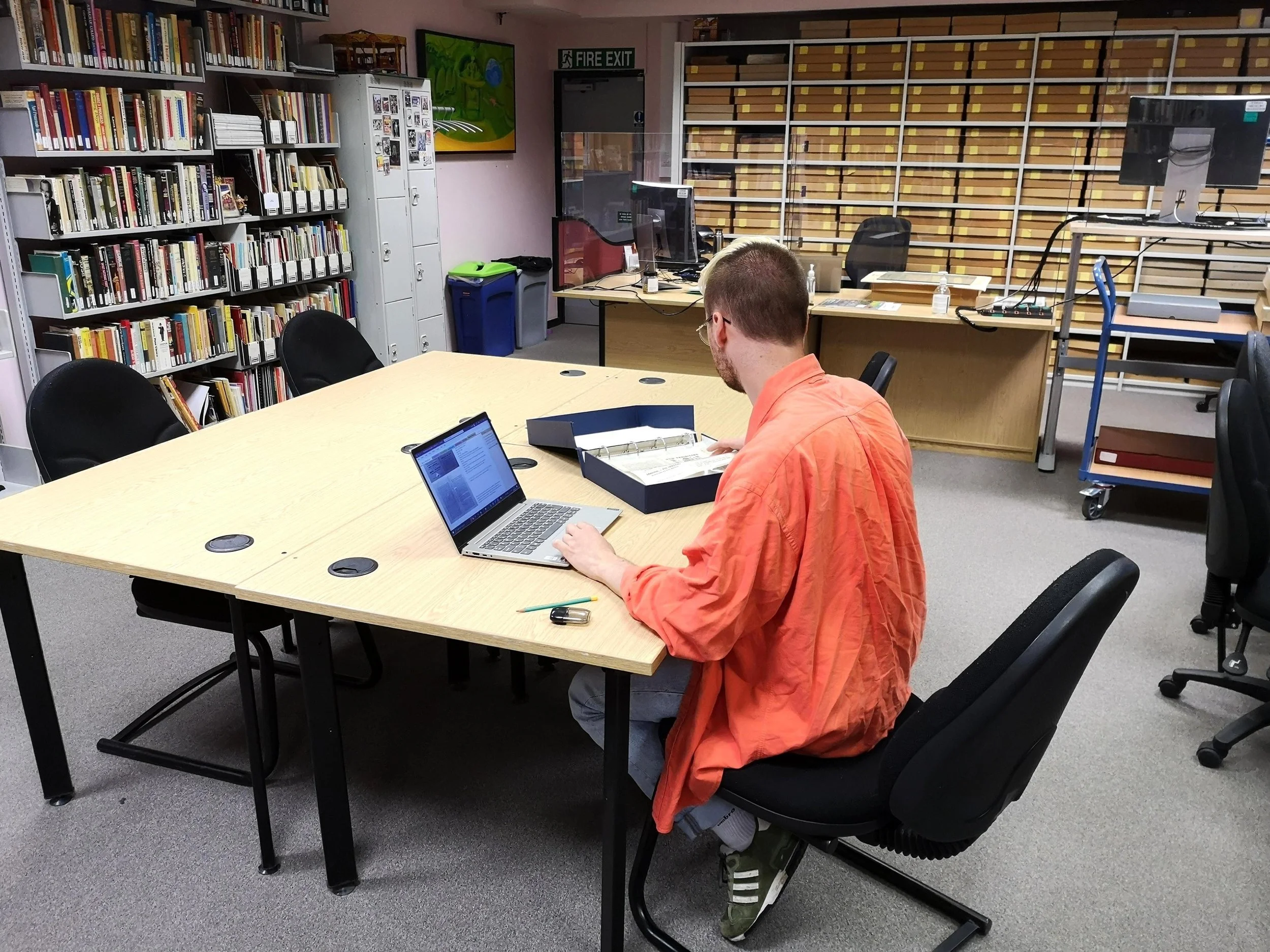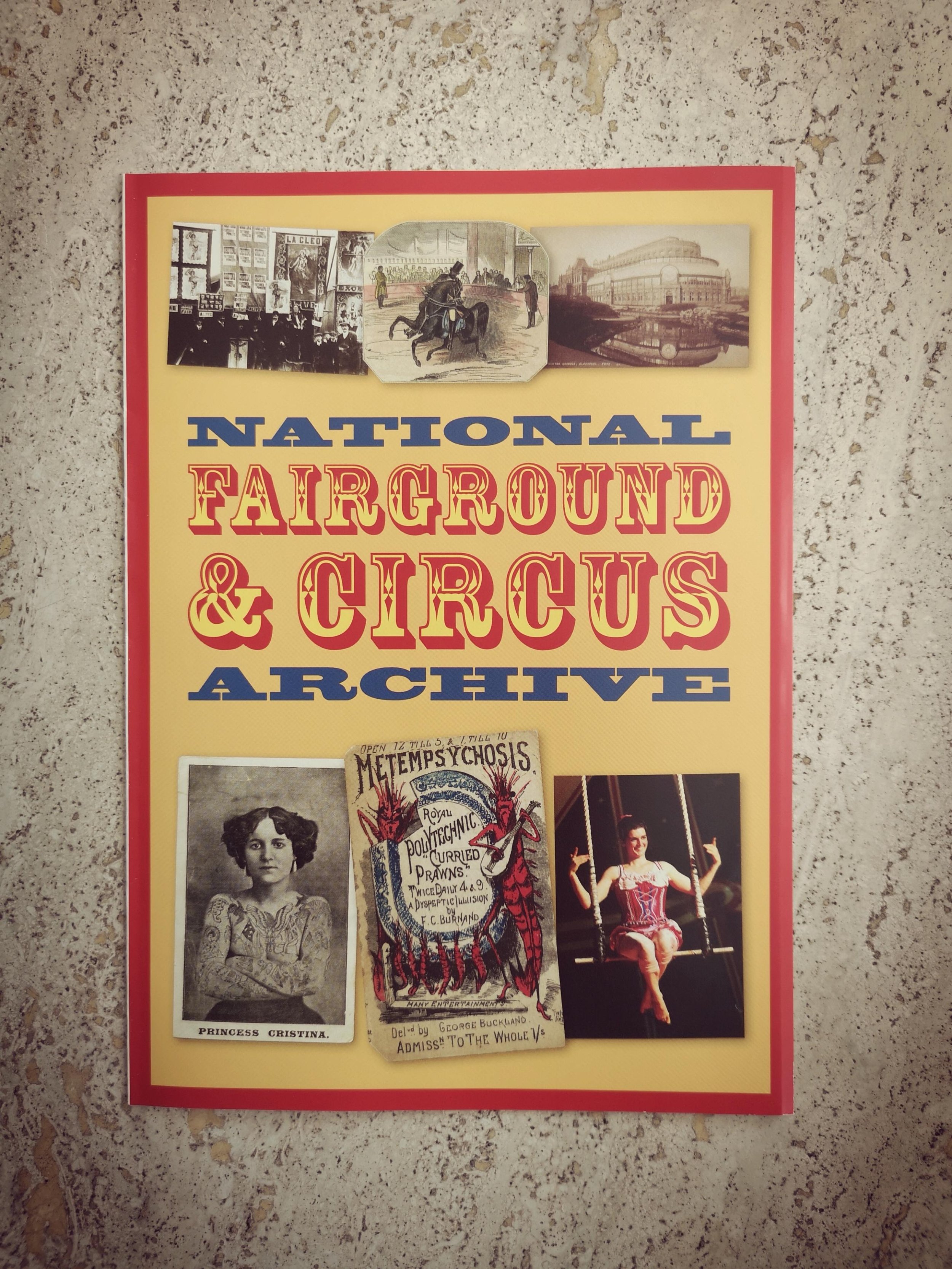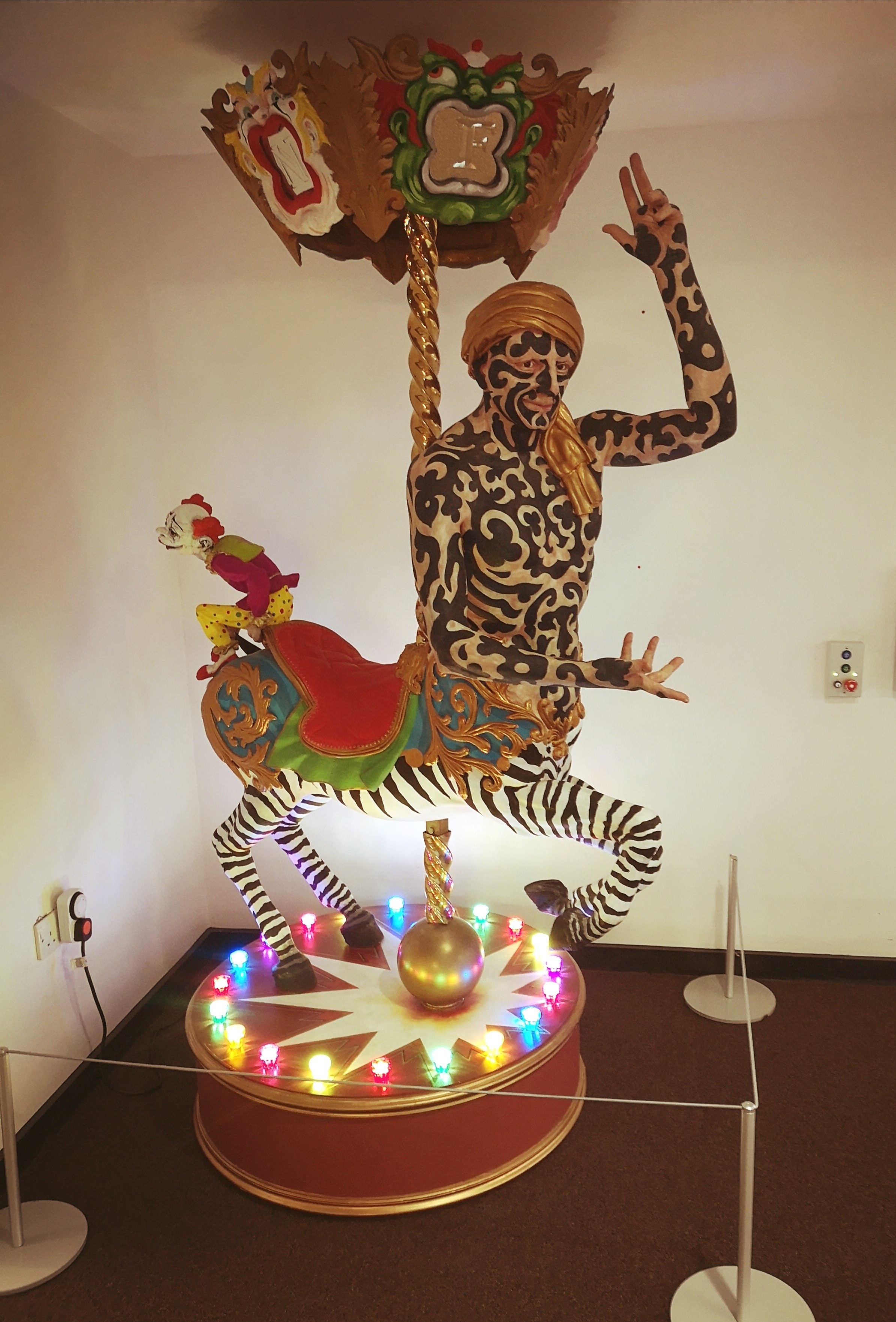Rolling Up at the National Fairground and Circus Archive
In the century of Charles Darwin, audiences flocked to get a glimpse of the Ape Lady, the Elephant Man, and even the Dog-Faced Boy. My research investigates how freakshow acts promoted as being half-human, half-animal hybrids were experienced by Victorian audiences in an epoch characterised by evolutionism, imperial conquest and ideologies concerning progress.
Photo: National Fairground and Circus Archive
Background
Thanks to a Research Support Award from the College of Arts which covered transportation and accommodation costs, I was able to spend four days at the National Fairground and Circus Archive in Sheffield. The NFCA holds the largest national collection of circus and freak show ephemera, covering an impressive scope of dates and locations. Photographs and posters that advertised freak shows are largely available online, but visiting the archive granted me access to a wide range of historical handbills, programmes, fliers, notebooks, scrapbooks, business records, newspaper cuttings, catalogues and postcards.
Using Archives
Photo: Ben at work in the archives.
A pencils-only policy protected the artefacts from damage, and each item had to be handled with care if handling was permitted. As is customary in many archives, I requested specific material in advance of my visit to ensure that the items were available. However, the NFCA provided an abundance of extra material which gave me much more food for thought than I was expecting.
(Re-)Imagining the Past
Photo Ben took of an exhibit example.
It’s easy to disconnect from the history you’re researching while accessing it through books and a computer screen. The NFCA helped me to remember that these histories were once immediate and new, especially when holding the handwritten notes for a stage routine scribbled on the back of an envelope from almost one hundred years ago. Fully preserving the ephemeral art of performance would be impossible, and the archive mourns the historical material that has been lost while allowing histories to be reinterpreted. One scrapbook contained a news article from the 1820s which was “125 years old” when the scrapbook was created, and each document was haunted by the time in which it was produced as well as those in which it continues to be reproduced.
Looking Forward
As a Theatre Studies student looking at historical productions, I accept that there are things that I will never know about these performances. Visiting the NFCA provided me with a greater knowledge of freakshows, but also a greater understanding of what we don’t know about them. The simultaneous feelings of transportation and hauntedness within the archive helped me to better understand historical experiences as well as the limitations of such understandings. I would strongly encourage other researchers looking at historical experiences (within theatre or otherwise) to pursue RSA funding, to visit archives and to experience this for themselves.
Ben Hall is a second-year PhD candidate in Theatre Studies researching the human-animal boundary in Victorian freakshows. When not researching theatre, he can be found reviewing shows at the Edinburgh fringe or at a pub quiz knowing the most obscure general knowledge. You can email him: 2495250H@student.gla.ac.uk






